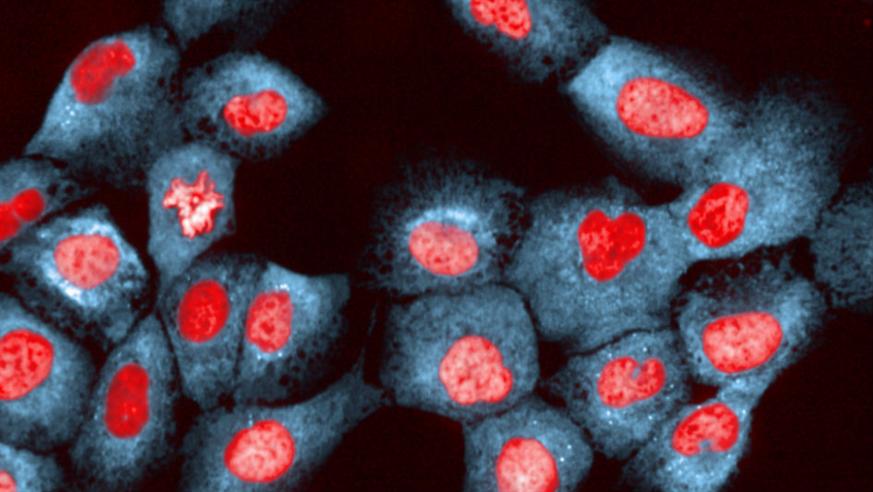
Scientists have developed a new test that can pick out women at high risk of relapsing from breast cancer within 10 years of diagnosis.
Their study looked for immune cell ‘hotspots’ in and around tumours, and found that women who had a high number of hotspots were more likely to relapse than those with lower numbers.
The new test could help more accurately assess the risk of cancer returning in individual patients, and offer them monitoring or preventative treatment.
Scientists at The Institute of Cancer Research, London, analysed tissue samples from 1,178 women with the most common form of breast cancer - oestrogen receptor positive breast cancer.
The team created a new, fully automated computer tool to analyse the samples, which were taken as part of a clinical trial at The Royal Marsden NHS Foundation Trust and other hospitals in the UK, comparing two hormone therapies that can help stop cancer recurring after surgery.
The researchers found that when immune cells clustered together in hotspots, the chance of relapse within 10 years of starting treatment was 25% higher than when immune cells were evenly dispersed.
The chance of cancer returning within five years was 23% higher in women with immune cell hotspots.
The researchers previously looked at tumour samples from oestrogen receptor-negative breast cancer, and found here that clustering of immune cells had the opposite effect, with hotspots linked to a lower chance of relapse.
Finding new immunotherapy drug targets
The study was published in the Journal of the National Cancer Institute today, and was funded by the NIHR Biomedical Research Centre at The Royal Marsden NHS Foundation Trust and the ICR, with support from Breast Cancer Now, Cancer Research UK, and Wellcome.
Once the new test is validated, it could be used to help predict the risk of cancer relapse, and to make decisions about the right course of treatment.
The effect of immune hotspots on the chance of relapse could be linked to how the immune system is working in these cancers.
Better understanding of the immune system in breast cancer could in future help unpick why certain immunotherapies work in some patients but not others, and lead to finding new immunotherapy drug targets.
Dr Yinyin Yuan, Team Leader in Computational Pathology at the ICR, said:
“We have developed a new, automated computer tool that makes an assessment of the risk of relapse based on how cells are organised spatially, and whether or not immune cells are clustered together in the tumour.
“In the most common form of breast cancer, oestrogen receptor positive, the presence of hotspots of immune cells clustered together in the tumour was strongly linked to an increased risk of relapse after hormone treatment.
“Larger studies are needed before an immune hotspot test could come to the clinic, but in future such a test could pick out patients at highest risk of their cancer returning. It might also be possible to predict which patients would respond to immunotherapy.
“The samples used in our study already form part of routine clinical practice, which means that implementing an immune hotspot test would be relatively easy and cost-effective.”
Research at the ICR is underpinned by generous contributions from our supporters. Find out more about how you can contribute to our mission to make the discoveries to defeat cancer.
Read more
Ingenious new computer-based test
Professor Mitch Dowsett, Head of the Ralph Lauren Centre for Breast Cancer Research at The Royal Marsden, and Professor of Endocrinology at the ICR said:
“There are a number of molecular tests used in the management of women with early breast cancer but none of these have focussed on the immune aspects of the disease.
We hope these novel findings will enable us to refine the use of those tests further and help us improve the management of the greater than 40,000 women who develop this type of breast cancer in the UK each year.”
Professor Paul Workman, Chief Executive of the ICR, said:
“This ingenious new computer-based test automatically analyses breast cancer samples, revealing patterns impossible to detect under the microscope with the human eye.
“In future, the test could allow us to identify those patients who are at a higher risk of relapse on hormone therapy, and potentially change their treatment.
“What this study also tells us is that the immune system probably has a key role to play in how breast cancer responds to hormone treatment. Measuring the immune response to cancer could be important in future to help identify patients who could benefit from immunotherapy.”